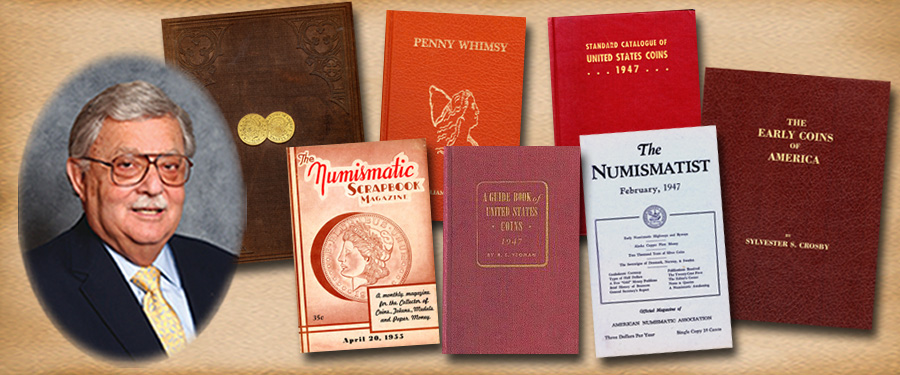
I became a professional numismatist, trained not only by my father and uncle, but also by Stack’s staff of experts and the collectors I met at our shop or at occasional numismatic shows. Traveling was not as easy in the post World War II era as it is now, so I mostly stayed in New York City, where Stack’s was already a well known coin shop.
When Stack’s moved from 23rd Street to West 46th Street, then to our location on West 57th Street, the shop had a numismatic library that became the envy of every dealer. It had early books, pamphlets, auction catalogs, manuscripts, and photographs — the reference sources needed for Stack’s to produce auction catalogs and price lists for our clients. Those who came to visit our various locations were offered free use of the library material we had assembled. Thus we were not only responsible for building major collections and developing new collectors, but we could also supply references needed by collectors to guide their collecting endeavors.
Stack’s retail store always had a number of shelves devoted to the sale of books and albums. These were appealing to collectors as well as people who were looking for a coin-related gift rather than a coin. A book or album could fit this bill and they enhanced our retail sales.
From the 1950s through the end of the 20th-century, literature and albums were very affordable. You could get the current edition of A Guide Book of United States Coins for $1.95. Hardbound Whitman coin albums for storing coins by date and mint could be bought for 25 cents. Deluxe albums made by National Coin Album Co. (owned by Wayte Raymond) and later by Mehrig Co. — featuring loose-leaf pages, with cellophane slides to see both sides of the coin) — sold for $1.50 for the album and 80 cents for each page. Each page measured 5-1/2 by 8 inches and was imprinted for the dates and mints needed for a collection. With a full stock of albums, pages and reference books, we had opportunities for multiple-item retail sales. Quite often the pages invited buyers to purchase a few coins to start filling in the empty holes. Then the challenge was to complete the album or page, often resulting in more visits to the store where a collector could learn more and more, often moving on to other specialties.
Two books that always sold tremendously well were the current edition of A Guide Book of United States Coins (as mentioned above, a very good deal at $1.95) and a book for youngsters entitled Nails to Nickels for $3 or so. The latter was designed to attract children to the hobby and featured great illustrations and stories to encourage them to become the collectors of the future
In Part 3 I will talk more about the current situation with regard to numismatic publications and why I think coin literature is still important.





